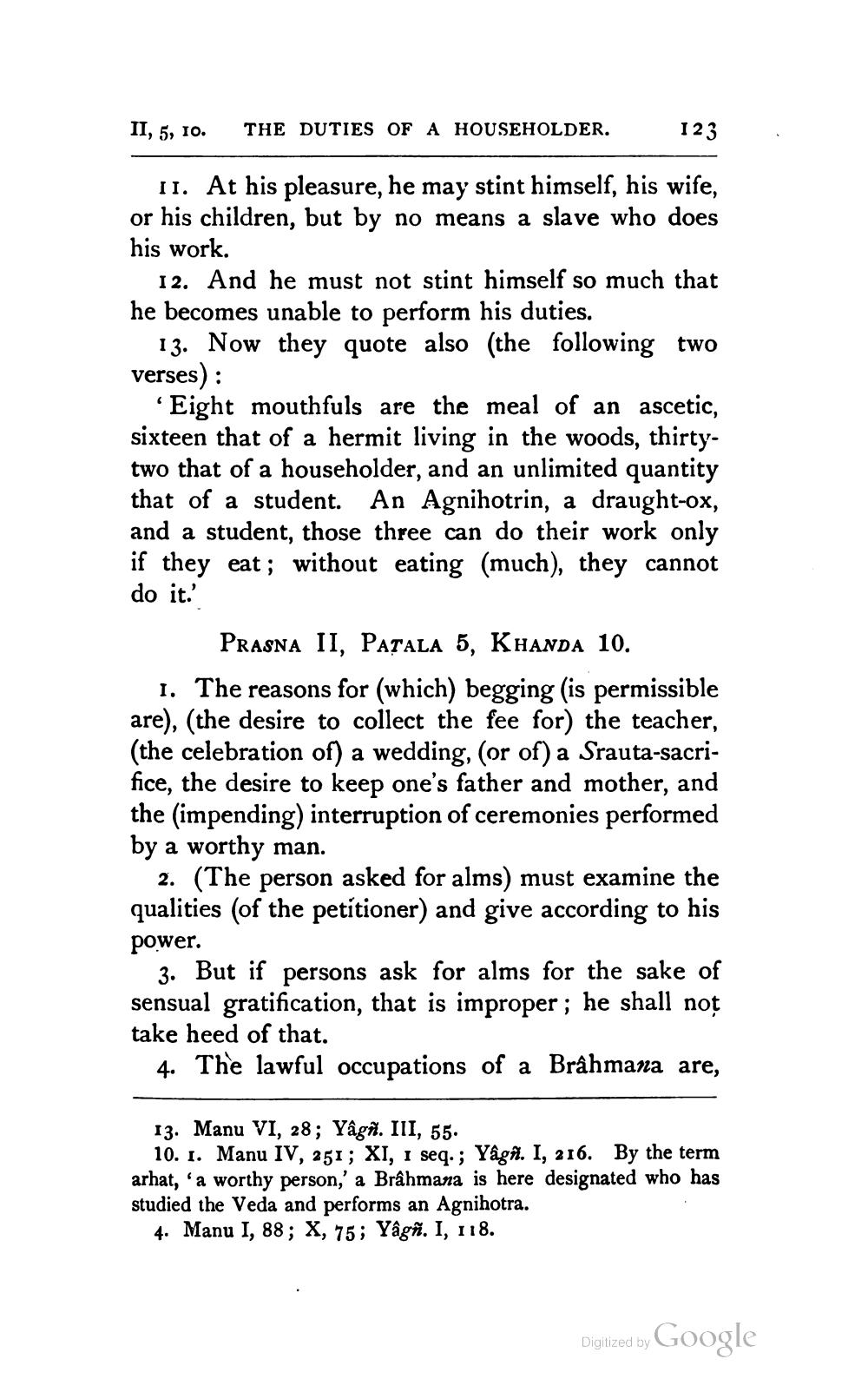________________
II, 5, 10. THE DUTIES OF A HOUSEHOLDER.
123
II. At his pleasure, he may stint himself, his wife, or his children, but by no means a slave who does his work.
12. And he must not stint himself so much that he becomes unable to perform his duties.
13. Now they quote also (the following two verses) :
'Eight mouthfuls are the meal of an ascetic, sixteen that of a hermit living in the woods, thirtytwo that of a householder, and an unlimited quantity that of a student. An Agnihotrin, a draught-ox, and a student, those three can do their work only if they eat; without eating (much), they cannot do it.'
PRASNA II, PATALA 5, KHANDA 10.
1. The reasons for (which) begging (is permissible are), (the desire to collect the fee for) the teacher, (the celebration of) a wedding, (or of) a Srauta-sacrifice, the desire to keep one's father and mother, and the (impending) interruption of ceremonies performed by a worthy man.
2. (The person asked for alms) must examine the qualities (of the petitioner) and give according to his power.
3. But if persons ask for alms for the sake of sensual gratification, that is improper; he shall not take heed of that.
4. The lawful occupations of a Brahmana are,
13. Manu VI, 28; Yâg. III, 55.
10. 1. Manu IV, 251; XI, 1 seq.; Yâg. I, 216. By the term arhat, 'a worthy person,' a Brâhmana is here designated who has studied the Veda and performs an Agnihotra.
4. Manu I, 88; X, 75; Yâgñ. I, 118.
Google
Digitized by




